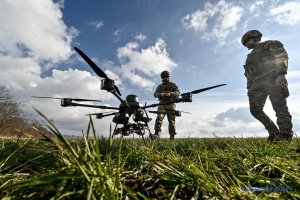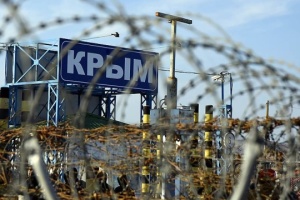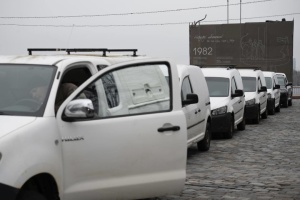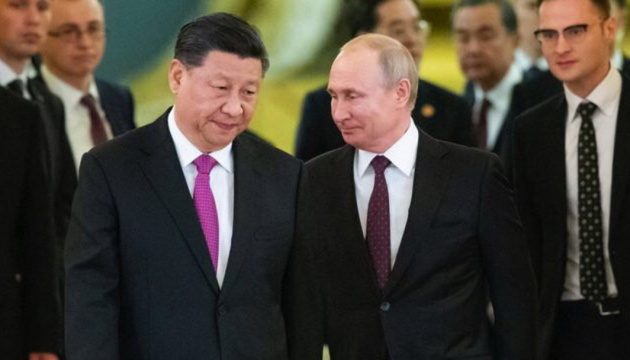
Democracy faces choice: either to defeat "coalition of evil" or to lose…
Event one. On October 18, the two-day One Belt, One Road International Cooperation Forum dedicated to China's global initiative of the same name ended in Beijing, with representatives from 151 countries participating. The Pacific region, Central Asia, the Arab states of the Middle East, Africa, and Latin America were represented. It is important that India ignored this event. This is not surprising, because this country is considered a direct competitor of China (after the G20 summit in New Delhi signed an agreement to create a powerful transit corridor for goods from India to the West, analysts predicted that the place of the "world factory" would be transferred from China to India).
Almost all Western countries with partners from the East/South - Australia, Japan, South Korea, and New Zealand - did the same.
Only two representatives of the European establishment, Hungarian Prime Minister Viktor Orban and Serbian President Aleksandar Vucic, allowed Xi Jinping to tick the box that there were guests from Europe (for more on this, see our Beijing correspondent's article). However, it was not so much this that caught my eye, but rather the fact that representatives of 150 countries, which is more than ¾ (!) of the UN membership, including the Secretary General of this organization, were not averse to breathing the same air as the representative of the 151st country, the world criminal and scoundrel No. 1 Putin, who traveled so far abroad for the first time in the year and a half of the full-scale war in Ukraine that he has unleashed. Of course, we cannot say that all of these fifteen hundred countries belong to the "coalition of evil" that already includes Russia, China, Iran, North Korea, etc., but at the same time, as we can see, this did not stop them. Obviously, the desire to "bite off something" was much stronger. Although no one publicly kissed Putin in the Brezhnev style on the sidelines of the Forum, the very fact that he came there, that he was received, photographed, and met with him is very revealing in the negative sense of the word.
Event two. Against the backdrop of the above, US President Joe Biden made a powerful and very timely "address to the nation" on October 19 [by the way, this is not often practiced by US presidents], which a number of experts have already compared to Winston Churchill's 1946 Fulton speech. It was with the Fulton speech that the Cold War began, which lasted for 40 years but ended with the unconditional victory of the democratic West.
Today, the West is lagging behind, often reacting "after the fact." So Biden's speech is a call to consolidate and seize the initiative. And that alone is good. Here is the main thesis of his address: "We’re facing an inflection point in history. One of those moments where the decisions we make today are going to determine the future for decades to come... History has taught us that when terrorists don’t pay a price for their terror, when dictators don’t pay a price for their aggression, they cause more chaos and death and more destruction. Hamas and Putin represent different threats, but they share this in common: they both want to completely annihilate a neighboring democracy." President Joe Biden emphasized that by defending allies such as Ukraine and Israel, the United States is safeguarding freedom and democracy and simultaneously making a substantial commitment to its own security. The speaker stressed that globally, it should be the United States leading the way, not Russia, not Iran, and not China.
And now for the questions. First, what do these two events mean for the world and Ukraine? Secondly, how can events develop further, will democracies eventually dare to become more active and tougher in countering autocracies and their terrorist chain organizations? Finally, can Biden's address really be considered "Fulton speech #2"?
Let's start with the last one.
Biden said that the West will no longer coddle the aggressors, they will be dealt with harshly
"I have heard some colleagues compare Biden's address to Churchill's Fulton speech. I understand the hint of the Cold War and so on. But I would rather compare it to Franklin Roosevelt's famous speech in December 1940, when he called the United States the "arsenal of democracy" and emphasized the need for comprehensive support from the UK," political scientist Ihor Reiterovych told Ukrinform.
According to him, Biden actually said the same thing, however, based on the realities of today.
"Here are some of his quotes: "Just as in World War II, today, patriotic American workers are building the arsenal of democracy and serving the cause of freedom," "American leadership is what holds the world together," "By protecting allies, the United States is protecting freedom and democracy," the expert lists. - "Biden said that support for democratic countries, and in this case, Ukraine and Israel, is crucial in terms of countering the 'axis of evil,'" the expert added.
And although Biden did not directly use such wording in his address, it was all very well read between the lines. And the phrase about Hamas terrorists and Putin, whom he put in the same row, separated by a comma...
"Thus, Biden actually called Russia a terrorist state. This suggests that the United States is not going to give up its global leadership in terms of protecting democracies. Therefore, they will make every effort to unite as many countries as possible to confront the authoritarian and totalitarian world, which is raising its head higher every day," emphasized Ihor Reiterovych.
Political analyst Oleh Posternak recalled another famous speech by the US president. In 1947, Harry Truman delivered his historic doctrine, in which he called on the Western world to unite against the expansion of Soviet totalitarianism into Eastern Europe and to provide assistance to Greece and Turkey. Joe Biden, 76 years later, actually repeats the leitmotif of these theses.
"But this time against Putin's tyranny and terrorists in the Middle East," the expert emphasizes.
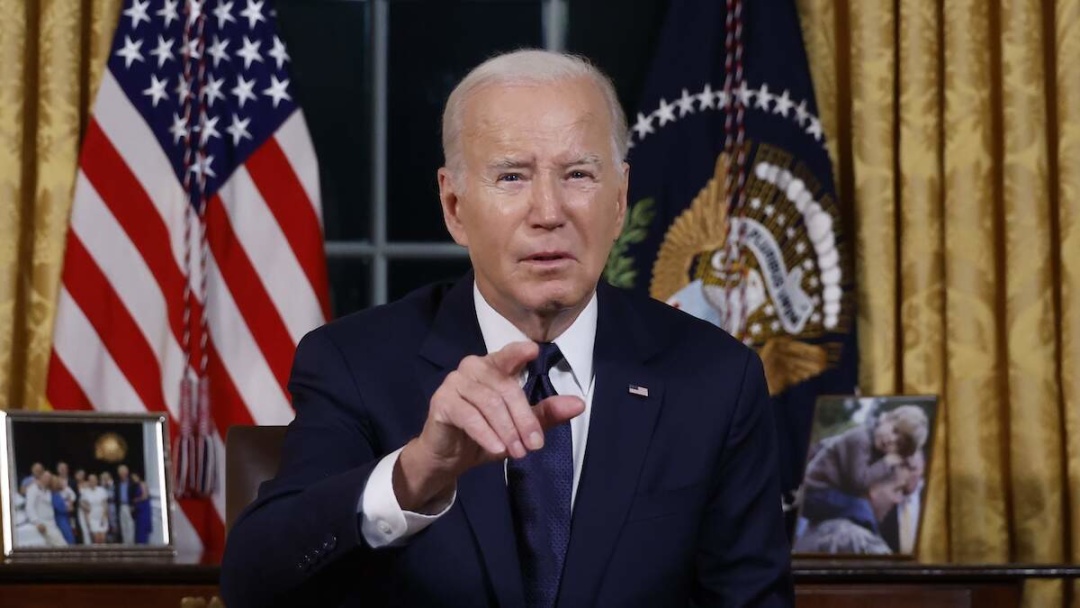
Nevertheless, diplomat Vadym Triukhan and former Ukrainian Foreign Minister Volodymyr Ohryzko believe that there is no point in drawing any parallels in this case, because then and now there were different historical conditions, players, and so on.
"Yes, Biden's address is indeed evidence of a breakdown in his political thinking in particular and the American establishment in general. A breakdown in the sense that it is a mistake to continue to pursue a policy of "appeasement of the aggressor." That is, all those years when the West looked into Putin's eyes, trying in vain to see something there, actually became a prologue to what we have today. Previous policies and attempts were catastrophically wrong. It seems that the West has finally realized this," says Volodymyr Ohryzko.
And this is Vadym Triukhan: "The historical context of those times and the present is different. 75 years ago, it was clear who the two non-alternative poles of power were. The United States and the USSR were the "bloc-forming" states. Now everything is much more complicated. In addition to Washington and Moscow, which is degrading every year, there is Beijing, there is Delhi, there is a collective Europe, which has recently become seriously subjectivized, there are states of the Global South, which, on the one hand, are ripe for competition with the West, and on the other hand, compete with each other, like China and India, or Brazil and Argentina."
Therefore, according to the diplomat, the purpose of Biden's speech is somewhat narrower than Churchill's Fulton speech. Biden wants to bring the West back into the game, which has lost its bearings and grip over the past 30 years after the collapse of the USSR. And Churchill, in 1946, primarily aimed to stop the "red contagion" that was spreading across the world.
"However, there is something in common in both of these undoubtedly historic events. The goal that Churchill set for himself and the West was achieved. Even if it took 40 years. The goal set by Biden also has every chance of being realized. However, this time the world will not survive 40 long years. We are talking about 3-5 years at most. Otherwise, a full-fledged World War III with the use of nuclear weapons, the consequences of which will be irreversible, cannot be avoided," Mr. Triukhan says.
There is a third opinion that should also be taken into account.
International expert Oleksandr Yusupov reminds us that Biden actually began to shape his foreign policy with the thesis "about the global struggle between democracy and autocracy" at the beginning of his presidency. Therefore, his speech was hardly a surprise to China, Russia, Iran, and others. In general, our interlocutor says that Biden's address, especially the direct comparison of Putin with Hamas, was made for the domestic American audience, namely to mobilize support for a new large-scale aid package for Ukraine, because as we know, there are significant obstacles in this process.
"For the first time in more than 20 years, the mortgage rate in the United States has reached 8%. The inflation rate is not as high as last year, but it is still not stabilized, especially in fuel prices. Meanwhile, the Congress cannot even elect a new speaker, which is why the country's legislature is in a dysfunctional state. Next year, presidential elections will be held. In such circumstances, Biden had to provide arguments for his desire to send tens of billions of dollars in military aid to several foreign countries and explain what unites the United States and these countries. Therefore, Biden's speech should be perceived as a pragmatic domestic political move, not as a systemic change in Washington's approach to global geopolitics," Mr. Yusupov believes.
And now the main question is what do these events mean for the world and Ukraine? A little spoiler: opinions on this matter are not just different, but often very different, however, sometimes they are somewhat intertwined. That is why we have divided them into three separate chapters.
The Beijing Forum and Biden's address are a manifestation of the changes that must take place in the world
According to Volodymyr Ohryzko, these events mean that the world has finally begun to distinguish between black and white.
"And finally, the world, and here I emphasize the West more, began to distinguish shades of black. Because before all these events, that is, before Russia's large-scale aggression against Ukraine, the West preferred to see a lot of shades of black, but did not want to see black itself. Now they have begun to see the black. I think this is good. Because finally we have to call an aggressor an aggressor, a totalitarian regime a totalitarian regime, terrorists terrorists, and a crime a crime. This polarization is much better than anything we have had so far. Therefore, these two events are manifestations of the changes that need to take place in the world."
So, the civilized world is beginning to call a spade a spade. But the autocratic world is also beginning to unite.
"Autocracies are trying to oppose themselves and many countries of the so-called Global South in the fight against democracies. Again, I think this is a positive trend, because it will require specific actions from each side. Actually, the "side of evil" has been taking and demonstrating these concrete actions for a long time, but the "side of good" has been trying to explain why they [autocracies] do this and what needs to be done to prevent them from doing it. There are signs that the West has finally come to the realization that the time for "spells" is over. Biden's address is precisely a sign that a decision has been made: we need to counteract, and toughly."
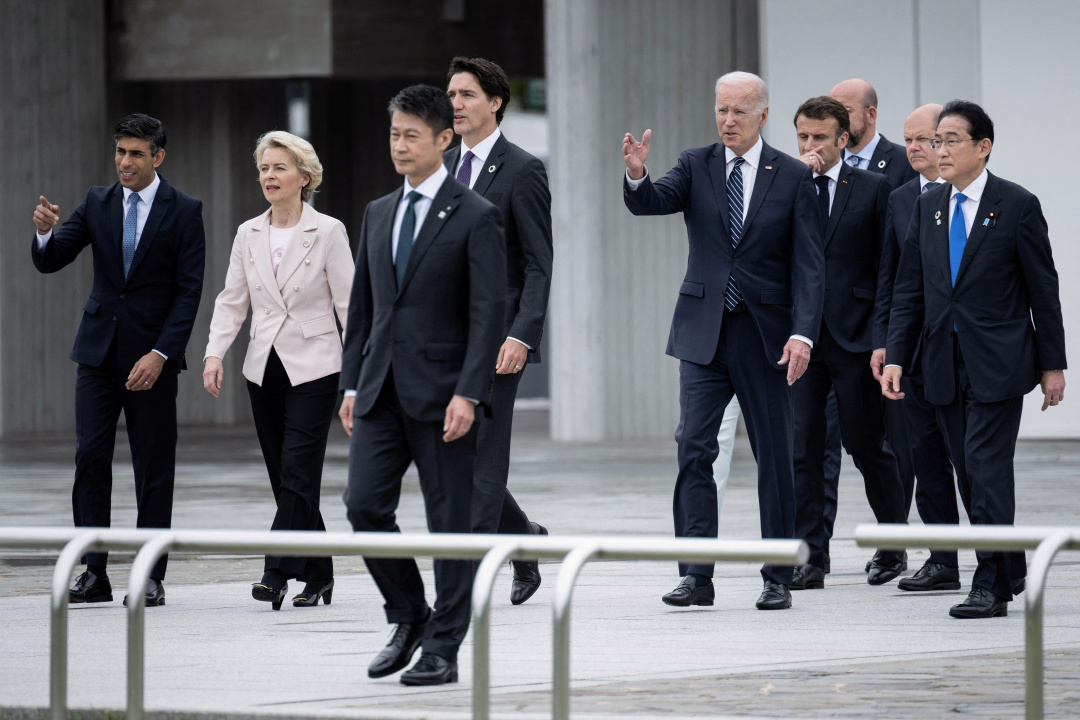
So far, these are just words, but the diplomat hopes that the words will finally be followed by practical steps.
"Because various correct words have been said before, but in terms of military assistance, they have even been transformed into half-steps. Instead of helping and training as quickly as possible [referring to Ukraine], everything was stretched out for many months," he emphasizes.
Of course, someone may criticize Mr. Ohryzko, saying that our partners were doing everything right in theory, because how could you fly an F-16 if you are not trained to fly it? This is true, but not entirely.
"Here the question can be put differently: why did the training of our pilots begin not in the spring of 2022, but only in the summer of 2023? Or why, for some completely artificial reason [despite the fact that this country provides us with truly enormous assistance and we should thank it for this], Germany has not yet decided to transfer long-range Taurus missiles? Perhaps these missiles will not dramatically change the situation at the front, but they will seriously add to Ukraine's defense. In fact, there are many things that could and should have been done earlier and faster. The same with ATACMS - we should have sent 200 or more units instead of 20.
I hope that Biden's words were heard as a call and that now the West is really ready for strong-willed decisions. They have only one way out - either to inflict a crushing and irreversible defeat on Russia, the main actor of the "axis of evil," that is, to defeat it, or to lose themselves."
The civilized world still has a lot of work to do, and Ukraine is facing a difficult diplomatic front
Analyzing this year's Belt and Road Forum in Beijing, Oleksandr Yusupov argues that it did not become a mega-event for the world.
"If, for example, in 2019, 36 leaders of states attended this summit, this time there were 22 of them [we are talking about leaders, i.e. presidents, prime ministers, chancellors, not lower-ranking representatives.] An additional detail: to prevent the joint photo of the leaders from looking too small, Beijing invited the first ladies to join them. In addition, before the pandemic, the value of the BRI deals exceeded $100 billion annually, but in 2022, only $68 billion was reached. And just a month ago, Italy, one of the world's largest economies, announced its intention to withdraw from the BRI. All of this points to the considerable problems of this platform, which will be difficult for China to solve," says the international political scientist.
Ukraine has its own conclusions. Putin spoke at the forum - it was his first speech to foreign leaders since an international arrest warrant was issued against him. Hungarian Prime Minister Orban was also there, and he became the first leader of an EU country after the start of a full-scale war against Ukraine to shake hands with Putin. And there was also the UN Secretary General, who called for a truce in the Gaza Strip in Putin's presence, without mentioning the Russian invasion of Ukraine.
"In conclusion... Although Moscow has definitely not returned to the status quo, Putin's international isolation is decreasing, China's aid is growing, and thus Ukraine is facing an even more difficult diplomatic front," Mr. Yusupov said.
As for the West, it can definitely become more active and tougher.
"But there is no great political will at the moment. Especially in Europe. A simple example: the EU countries have about 2,000 Leopard 2 tanks in service, but Ukraine has received only 71. And this is despite the fact that the EU publicly emphasizes: "Ukraine is fighting not only for its freedom, but also for our strategic security." Instead, we hear from Brussels that Europe will not be able to replace US support for Ukraine. At the same time, Berlin still refuses to provide us with long-range weapons, despite the fact that Britain, France, and even the United States have already done so," the expert emphasizes.
Of course, if we compare the situation with the spring of 2022, the difference in the volume and types of military assistance is enormous. However, this does not change the obvious fact: Ukraine needs much more. This also applies to the economic front, where Russia circumvents sanctions because of the passivity of Western countries that do not want to put too much pressure on India, China, Turkey, and others who help the Kremlin keep the Russian economy afloat.
"In any case, Ukraine needs to rely on itself as much as possible. Kyiv has managed to unblock grain exports through the Black Sea with the help of its own maritime drones, hasn't it? And the new version of the Neptune missile is destroying the occupiers in Crimea. We also struck at the allies of the Wagner PMC in Sudan. So there is already progress," emphasizes Oleksandr Yusupov.
The final division of the world between the United States and China, and even more so between the United States and Russia, is not yet in question
"The forum in Beijing is more of a bid for leadership that Xi Jinping tried to realize," Vadym Triukhan says.
At the same time, most of the states that accepted the invitation of the Chinese organizers and came to the Forum dream of being invited to the third Summit for Democracy [a virtual summit launched by Biden "to restore democracy at home and confront autocracies abroad"] Some of the participants had participated in one of the two previous ones, or even in both.
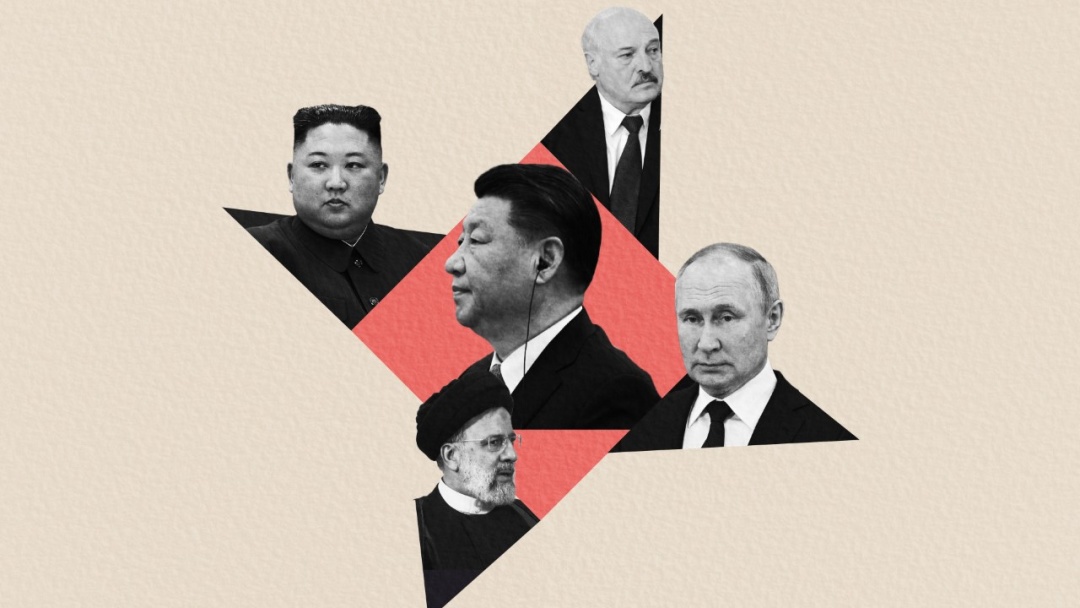
Referring to President Biden's address to the nation, the diplomat emphasized that the American leader not only outlined the circle of outright enemies of democracy and the Free World: "He has committed himself to defeat them. This is a direct challenge that no one has ever dared to make before. And the states of the so-called "axis of evil" lack the courage to publicly declare their intentions to defeat their opponents from the democratic world. Democratic leaders act in public, while maniacs like Putin act in private, trying to justify their war crimes."
How can events develop further, what are your predictions? Mr. Triukhan believes that it will not be easy for anyone.
"For too long, the societies of the states that make up the backbone of the democratic world have been metastasizing the 'resting on their laurels' after the victory in the Cold War," he says. - "The experience of Trump's forcing NATO member states to invest 2% of their budgets in their own security, which turned out to be a complete failure, shows that the Western world was not ready to wake up from a lethargic sleep in the fog of pacifism. Decisions to launch the production of modern weapons and allocate budgetary funding for army rearmament are being made too slowly."
Although there are exceptions. Poland is investing tens of billions in the armed forces, proclaiming the goal of building the most powerful army on the continent. Germany has already allocated more than 100 billion euros for its own army. Rearmament programs have been launched in a number of NATO member states.
"However, will the West have time to become a "hungry tiger" again, tearing its enemies to pieces, from Hamas and Putin's Russia to North Korea and communist China, or will it remain a "colossus on clay feet" ready to fall from the mere nuclear threats of lowly satraps, maniacs who have usurped power and resources?" the diplomat asks.
Of course, there is no answer to this question yet.
Myroslav Liskovych, Kyiv


